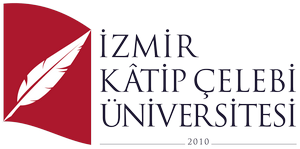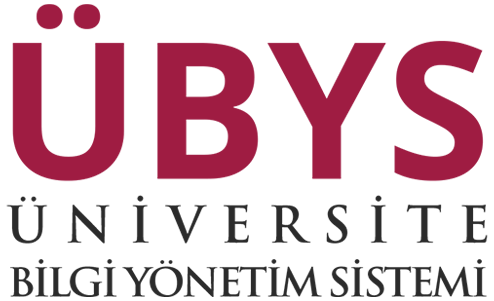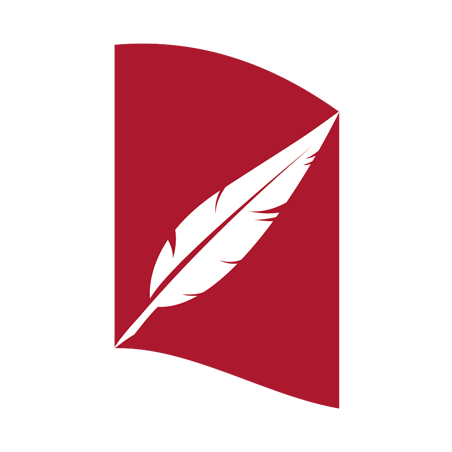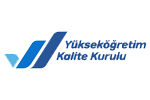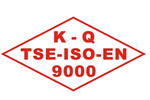Ethical Principles and Publication Policy
Ethical Principles and Publication Policy
Blind Review and Evaluation Process
JOBIG uses blind review system for the evaluation of submitted works for publication. Blind review is the most ideal method used to evaluate scientific publications objectively and effectively and prepare them for publication. This method serves the principle of "objectivity", which means being impartial by staying away from prejudices that form the basis of the scientific method.
JOBIG uses a double blind method for evaluation of all the studies. Author and referee names are kept hidden in double-blind method.
First assessment process: Articles applying to JOBIG for publication enter the first assessment process. In this process, compliance with the journal's writing rules is sought. Studies that are not found suitable are returned to the author/s without entering the referee process.
Preliminary assessment process: Studies that pass the first assessment are sent to the editor for preliminary assessment. The editor assessments the study in terms of compliance with the purpose and scope of the journal. Studies that are not found suitable are returned to the author/s.
Referee evaluation process: The studies that pass the preliminary assessment reach the referee evaluation stage. In this process, the study is sent to experts in their field and asked to evaluate. 3 referees are appointed for studies. If both of the referees give positive opinions, the referee process is completed.
The maximum time given to the referees for evaluation of the study sent is 4 weeks. A new referee is assigned for the study which is not reported in the time given.
It is obligatory to complete the review suggestions of the referees or editors in 2 months. Not only do the referees decide the convenience of a study by investigating reviews but also they can demand review multiple times if needed. Publications that are not corrected within the specified period are rejected.
Although publication ethics in the articles sent to our journal is under the responsibility of the authors, the editorial board also examines plagiarism (Turnitin or iThenticate). Articles with more than 25% similarity are rejected.
Articles that have successfully passed the plagiarism check are published in the first appropriate issue.
Correction Directive and Upload Guide
One or more corrections and improvements may be requested by editors, field editors and/or referees for the work in the evaluation process. The author (s) are obliged to complete corrections and improvements in a complete, explanatory and timely manner, with the awareness that the requested correction and improvement suggestions for objective and increase the originality of the study. Author (s) must upload the requested corrections and improvements to the system according to the conditions specified in the “Correction Directive and Installation Guide”.
Work / Article Retract
The duties and responsibilities of the author (s) and the editorial board during the withdrawal of a work or article in accordance with the journal’s publication policies are given below.
Writers
In the event that the author (s) notices a mistake or mistake about the published, early appearance or evaluation stage, they have an obligation to cooperate with the journal editor in withdrawal procedures. The author (s) who wish to request to withdraw their work at the evaluation stage are obliged to send it to the editorial board via e-mail at jobig@ikc.edu.tr. The Editorial Board reviews the withdrawal notification and returns within one week at the latest. Authors can not send their work to another journal for evaluation unless the withdrawal request of the works transferred by the editorial board at the time of submission is approved.
Editors
Editorial board; In case of suspicion of copyright and plagiarism related to a published, early view or under evaluation study, it is obliged to initiate an investigation into the study. If, as a result of the investigation, the editorial board detects that there is copyright and plagiarism in the study at the evaluation stage, it withdraws the work from evaluation and returns the detected situations to the authors by citing detailed sources. If the editorial board detects copyright infringement and plagiarism in a published or early-view work, it will perform the following recalls and notification procedures within one week at the latest.
The study involving ethical violations;
1. “Withdrawn:” phrase is added to the beginning of the title in an electronic display.
2. Instead of the “Abstract and Full text” contents in the electronic display, the reasons for withdrawal of the study, if there are detailed sources of evidence, are published together with the notifications of the institutions and organizations to which the author (s) are affiliated.
3. The withdrawal notice is announced on the main page of the journal website.
4. As of the date of withdrawal, the electronic and hard copy of the first issue to be published is added to the table of contents as “Withdrawn: Study Title”, the reasons for withdrawal and the original citations referenced are shared with the public and researchers, starting from the first page.
5. The above withdrawal notifications are sent to the organization (s) to which the author (s) are affiliated.
6. The withdrawal notifications listed above are sent to the institutions and organizations in which the Journal is indexed and to the National Library Directorate for registration in index systems and catalogs.
In addition, the editorial board may recommend that the author (s) of the work whose ethical violation has been violated, to publishing houses or editorial boards, ensure the validity and reliability of the published studies or withdraw them.
Objection to the Evaluation Result
The author (s) may object to the evaluation result. The author (s) should send the objection justifications regarding the evaluation results for their studies in a scientific language and to the address iibf@ikc.edu.tr by referring to the grounds. The objections made are examined by the editorial board within one month at the latest (opinion can be requested about the objections made to the field editor and referees of the study), and a positive or negative response is provided to the author (s). If the objections of the author (s) to the evaluation result are found positive, the editorial board restarts the evaluation process by making new referees in accordance with the subject area of the study.
